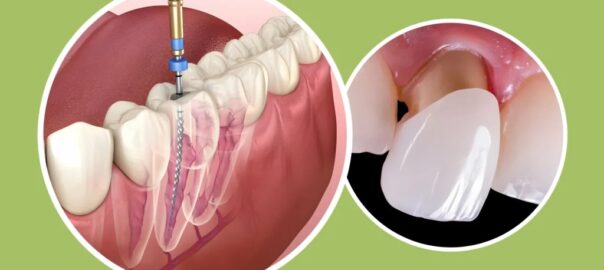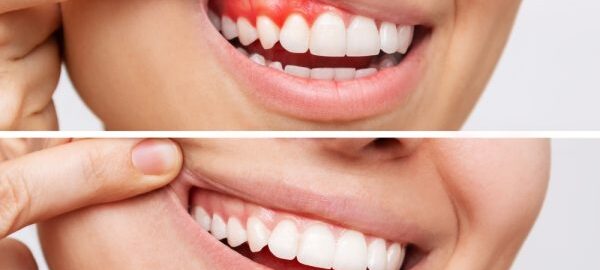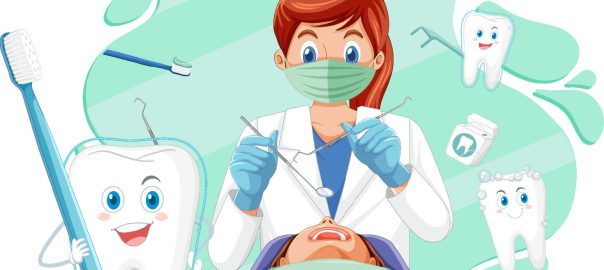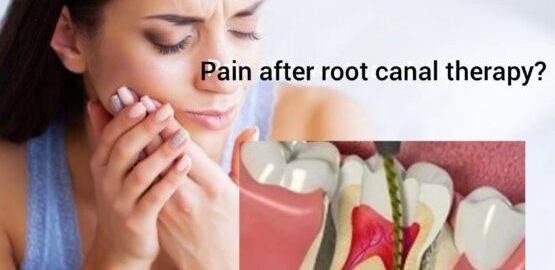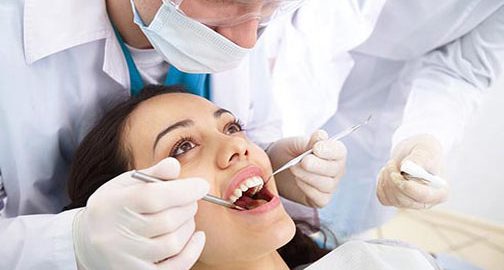Root Canal is a dental treatment that seeks to clean and disinfect the inside of the tooth. This is a process commonly known as killing the nerve.
Although the intervention is minimally invasive, performed under local anaesthesia and its result is successful, it is normal to experience some pain after a root canal.
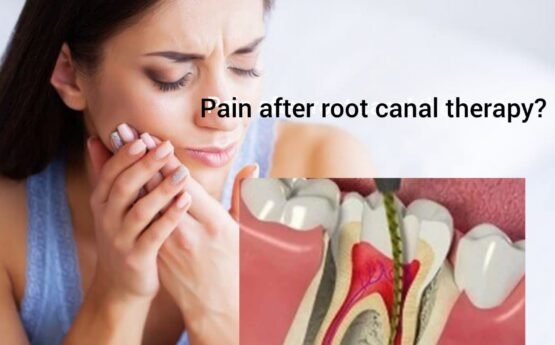
When is endodontics necessary?
A root canal is performed with the aim of saving a severely damaged tooth, due to deep decay, trauma or advanced periodontitis. This causes a series of reactions such as the following:
- Dental sensitivity: before contact with hot or cold food and even when chewing.
- Pain: is the main symptom. It is a discomfort that can be both intermittent and constant, but that does not diminish with the passing of the days.
- Color change: a sudden color change, especially if it occurs after a blow, can also be a sign that the tooth needs endodontic treatment.
- Appearance of fistulas: that is, a lump with pus in the gum.
Any of these symptoms could be indicative that a root canal is necessary, but in case of any suspicion, we recommend that you go to our dental clinic in Ashok Vihar so that they can make a proper diagnosis.
Causes of pain after a root canal
As we have already explained, during the intervention it is not likely that you will suffer discomfort, since local anaesthesia is applied.
However, in the following days, it is normal and common to suffer pain after a root canal, since during the root canal treatment in Ashok Vihar the pulp of the tooth is extracted, that is, the inner part of the dental piece.
This causes inflammation of the tissues surrounding the endodontic tooth, which gives rise to pain. Therefore, we must understand that it is normal and common in the recovery process.
This pain may be different in each patient, but the fact that it persists after a few days could be indicative of complications. For example, it is possible that the root canal did not completely eliminate the infection.
The reasons why this occurs can be several, such as that the root canals have not been cleaned properly or that the sealing has not been carried out correctly and the bacteria have re-entered.
It may also happen that, during the procedure, the isolation of the tooth to be endodontic has not been carried out properly. As a consequence, microorganisms from the outside have accessed the inside of the tooth.
In short, there are several reasons why pain can appear after a root canal. Some are normal and others may indicate the existence of complications. Therefore, it is essential to go to the dentist in Ashok Vihar if the pain and discomfort do not decrease with the passing of the days.
How long does it take for the pain to disappear after a root canal?
As a general rule, pain after a root canal usually disappears in a period of between three and seven days.
If the pain is very intense, the dentist can prescribe analgesic medication. In any case, the discomfort and pain should disappear within seven days. If this does not happen, it is necessary to consult with the dentist.
It is normal for a certain degree of pain to appear after a root canal, although it should disappear as the days go by.
How to calm the pain of a tooth with endodontics?
If we notice that the endodontic tooth hurts us, there are a series of tips and recommendations that we can follow to reduce the discomfort :
- First of all, taking analgesics and anti-inflammatories will help us reduce pain and inflammation. If deemed necessary, the dentist may also prescribe antibiotics to prevent infection.
- When brushing your teeth, it is advisable to use a soft bristle brush and be especially careful with the painful area.
- Place a cold compress or something that simulates it, such as a cold cloth or a piece of ice on the cheek, in the area where the root canal has been performed. Leave it on for five minutes and, if after that time the pain continues, apply it again every 15 minutes.
- Avoid hard foods during the first days, as well as very cold or hot foods, as they cause sensitivity.
- In the case of bruxists, it is especially necessary that they use their discharge splint. If they grind or clench their teeth at night, the sensation of pain will increase.
How do I know if I have an infection after a root canal?
As we have already explained, if the pain after a root canal lasts longer than usual, it may be a symptom of an infection.
In addition to discomfort in the endodontically treated tooth, other symptoms that may alert that the treatment has not worked are hypersensitivity when chewing or palpating or hitting the treated area, accompanied by inflammation of the gums.
If this happens, it would be necessary to assess the possibility of performing the endodontics again, that is, of performing a re-endodontics.
In the event that this is not possible due to a poor prognosis of the dental piece, it would be possible to extract the tooth and place an implant.
However, it may still be too early to worry about it. If you are experiencing pain after a root canal, the first thing is to assess how many days have passed since the procedure.
If you are within the seven-day window and the pain decreases with painkillers, you may be in a normal situation.
On the other hand, if a week has already passed, we recommend you consult your dentist or go to any of our dental clinics to be checked by a dentist in Model Town. In case you need a second opinion, we can assist you with a consultation.
Of course, once you have solved the problem, we recommend that you do not forget basic oral care, which in a large number of cases avoids the need for a root canal: go to the dentist for check-ups at least once a year and brush your teeth after each meal.
Likewise, it is essential to have a professional dental cleaning at least once a year, so that we prevent cavities and, therefore, avoid subsequent treatments such as endodontics.


